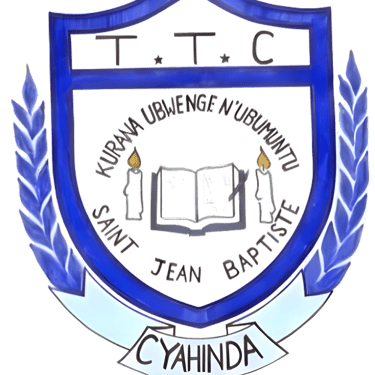A New Approach To Embrace ICT in Education: Introducing www.cyahinda.com
Welcome to our new website, a multifunctional platform for teachers, students and important stakeholders specifically designed to enhance educational productivity using ICT and modern teaching and learning methodologies.
TTC BLOGUPDATES & ANNOUNCEMENTS
By Josiah Chidawo
1/2/20255 min read


Embracing ICT in Education
In today's rapidly evolving educational landscape, the integration of Information and Communication Technology (ICT) has emerged as a critical component in enhancing the learning experience. As educational institutions increasingly adopt digital methodologies, they are recognizing the profound impact that technology can have on both teaching and learning processes. This shift towards a more technology-centric approach is not merely an adaptation to trends but represents a fundamental change in the way education is delivered and experienced.
The significance of ICT in education lies in its ability to create interactive and engaging learning environments. Rather than relying solely on traditional teaching methods, educators are now equipped with a multitude of digital tools and resources that facilitate collaboration, creativity, and communication among students. The use of multimedia, online platforms, and educational software enhances students' understanding of complex subjects, catering to diverse learning styles and needs. Such technological integration empowers educators to personalize instruction, allowing them to address individual student challenges more effectively.
Moreover, this technological evolution is crucial for preparing students for the demands of the modern workforce. In a globally connected economy, familiarity with ICT tools and digital literacy are essential skills that students must acquire. By incorporating these elements into the curriculum, educational institutions not only enhance academic performance but also cultivate critical thinking, problem-solving, and collaboration skills among students. This alignment with contemporary educational standards is particularly relevant in Rwanda, where modernization of the education sector is paramount for national development.
Consequently, the transition towards ICT-enabled education is essential for both students and educators. As schools embrace these innovations, they not only elevate their educational offerings but also contribute significantly to the broader goal of fostering a knowledge-based economy. The commitment to integrating ICT in education is a promising step towards empowering future generations, ensuring they are well-equipped to navigate the complexities of the digital age.
The Need for a Modern Website
In today's rapidly evolving educational landscape, particularly within the realm of Information and Communication Technology (ICT), the necessity for a modern, multifunctional website has never been more pronounced. Traditional approaches to education have often relied upon outdated resources and methods that do not effectively engage or support learners in a digital-first world. As a result, there is an increasing demand for an innovative online platform that acts as a central hub for resources, communication, and learning experiences among students and educators alike.
A modern website must address the limitations of conventional teaching tools by offering greater accessibility to diverse educational materials. Students today require instant access to a range of learning resources, including video tutorials, interactive lessons, and up-to-date articles on emerging ICT trends. A well-designed platform provides educators with the ability to curate and share these materials efficiently, enabling a more dynamic and responsive learning environment. Moreover, a versatile website can facilitate easy communication between students and instructors, fostering collaboration and support that is often lacking in traditional settings.
Critical features that are essential for a modern educational website include user-friendly navigation, responsive design for mobile accessibility, and integrated tools for assessments and feedback. Such functionalities not only enhance the overall user experience but also contribute significantly to improved teaching and learning outcomes. By embracing a digital approach, the website can support personalized learning, enabling students to progress at their own pace while giving educators valuable insights into individual performance and areas for improvement.
As the educational landscape continues to shift towards digital platforms, the need for a modern website is clear. The integration of essential features and resources will create an inclusive, adaptable space that supports the educational goals of all users, ultimately fostering a more effective learning environment in the ICT domain.
Introducing our All-in-One Platform
In response to the evolving needs of modern education, www.cyahinda.com emerges as a robust solution that addresses various challenges faced by educators and learners alike. This innovative platform combines a user-friendly interface with powerful features designed to elevate the educational experience. One of the standout aspects of www.cyahinda.com is its seamless integration of Google learning tools, which empowers users to leverage advanced technology for effective teaching and interactive learning.
The platform fosters collaboration among educators, students, and stakeholders by promoting an engaging learning environment. This is achieved through functionalities that encourage real-time discussions, project-based activities, and peer reviews. These features not only enhance the interactivity of the educational process but also enable learners to develop essential teamwork and communication skills, which are vital in today’s interconnected world.
Furthermore, www.cyahinda.com is not merely a repository for educational materials; it is designed to be a holistic learning ecosystem. Educators can curate their own content, share resources, and create custom courses tailored to the specific needs of their students. This flexibility equips teachers with the tools they need to implement innovative teaching strategies and adapt their methodologies to suit various learning styles.
The focus on user experience is evident in the platform's intuitive design, making it accessible for users of all ages and technical backgrounds. Whether one is an instructor looking to engage students or a learner seeking enhanced educational resources, www.cyahinda.com caters to diverse needs within the ICT education landscape.
With the commitment to not only distribute knowledge but also to nurture a vibrant learning community, www.cyahinda.com is poised to redefine education in the digital age. By creating a space where creativity and technology converge, this platform aspires to empower both educators and students, ultimately enriching the educational journey.
The Role of Teacher Training Colleges (TTCs)
Teacher Training Colleges (TTCs) are pivotal institutions in the educational landscape of Rwanda, playing a fundamental role in shaping the future of teaching. These colleges are entrusted with the critical responsibility of equipping future educators with essential pedagogical skills and knowledge in information and communication technology (ICT). The integration of ICT proficiency into teacher training programs is increasingly vital in preparing educators to handle the demands of modern classrooms.
As the educational sector continues to embrace technological advancements, TTCs must evolve to incorporate new teaching methodologies that leverage these tools. This evolution often involves upskilling trainers on the latest ICT developments, enabling them to model effective integration of technology in their instructional practices. By fostering a strong foundation in both traditional pedagogical approaches and contemporary digital tools, TTCs significantly enhance the effectiveness of instructional delivery. This inclusive approach ensures that future teachers can utilize various digital resources in their teaching, ultimately leading to improved student learning outcomes.
Moreover, TTCs provide a unique platform for collaboration among educators, technology experts, and educational stakeholders, facilitating a dynamic exchange of ideas and best practices. Such collaborations can result in innovative programs that address specific educational challenges and adapt to the changing needs of students and communities. Therefore, the role of TTCs extends beyond mere training; it encompasses the broader mission of nurturing educators who are well-prepared to innovate and adapt in an increasingly digital educational environment.
In conclusion, the pivotal role of Teacher Training Colleges in Rwanda cannot be overstated. By focusing on the dual aspects of pedagogical expertise and ICT proficiency, these institutions are not only shaping competent educators but are also playing a critical part in ensuring that the future of education in Rwanda is effectively aligned with technological advancements.
Physical address
TTC St J. B. Cyahinda, Cyahinda Sector
Newsletter
© 2024. All rights reserved.
Nyaruguru District
Southern Province, Rwanda
📞 +250 780 866 334
Contact Details
Banking details:
Bank Name: ECOBANK
Account Number: 00500138 04183201
Account Name: Saint Jean Baptiste Cyahinda
